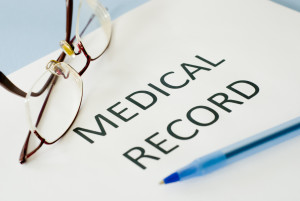I get this question from injured workers a lot. They’ve received a Medical Release from the insurance adjuster requesting that they sign it. We like to think that our health information is completely private and protected by the HIPPA laws. However, if you read this article further, you will learn that workers compensation is a category outside of the HIPPA laws and is treated differently.
The truth is, if you want workers compensation medical benefits, the insurance company DOES have the right to gain access to all of your medical health records (even medical records prior to the accident and non-workers compensation doctors you have seen) to investigate the claim and the medical treatment that the current workers compensation doctor is recommending. Below, I have added a few notes in parenthesis and I’ve also delete some portions of the law to make this a little easier to read and understand.

Section 164.512(l)–Disclosures For Workers’ Compensation
“we include a provision that clarifies the ability of covered entities (Medical Providers) to disclose protected health information without authorization (by the patient) to comply with workers’ compensation programs that provide benefits for work-related illnesses or injuries without regard to fault. Although most disclosures for workers’ compensation would be permissible under other provisions of this rule, particularly the provisions that permit disclosures for payment and as required by law, we are aware of the significant variability among workers’ compensation and similar laws, and include this provision to ensure that existing workers’ compensation systems are not disrupted.
Under this provision, a covered entity (Medical Providers) may disclose protected health information regarding an individual to a party responsible for payment of workers’ compensation benefits to the individual, and to an agency responsible for administering and /or adjudicating the individual’s claim for workers’ compensation benefits. ”
“The Virginia Workers’ Compensation Commission has interpreted this provision in several decisions. The Commission has held that the parties in a workers’ compensation proceeding have the right to subpoena and review ALL medical documents which are, or may be, related to the claimant’s condition, under the Virginia Workers’ Compensation Act and the exception found in Code § 32.1-127.1:03(C) . Additionally, Code § 65.2-607(A) provides a waiver of the physician/patient privilege in workers compensation cases. A more complete discussion of these issues can be found in the Commission’s decision Randall v. SHS International, Inc., VWC File No. 214-26-37 (March 29, 2004) . See also Scarafino v. CVS Drugs, VWC File No. 206-30-17 (July 8, 2004)”
To view the entire article by the Commission, follow this link.
As you see in the last paragraph from the Commission’s website, even if you don’t sign the medical release, the insurance company may issue a Subpoena through the Commission and gain access to this information without your consent. The difference really boils down to timing. If you sign the Release, the insurance company will get access to this information more quickly rather than if they have to go through the formality of subpoenaing your medical records. This will usually delay the processing of your claim significantly. During the delay, I am sure the insurance company will not pay for your medical care or your weekly check.
If you are not sure about signing a Medical Release or if the Release is asking for more than your medical records (which they often do ask for things like tax records, credit reports and so on), I would recommend talking to an attorney’s office before you sign and then make the decision.
About the Author: Injured Workers Law Firm
The Injured Workers Law Firm is a Richmond, Virginia based firm solely focused on serving clients with workers' compensation claims in Virginia. If you have questions about your benefits or if you would like more information on the Virginia Workers’ Compensation system, order our book, “The Ultimate Guide to Workers’ Compensation in Virginia” , or call our office today (804) 755-7755.


